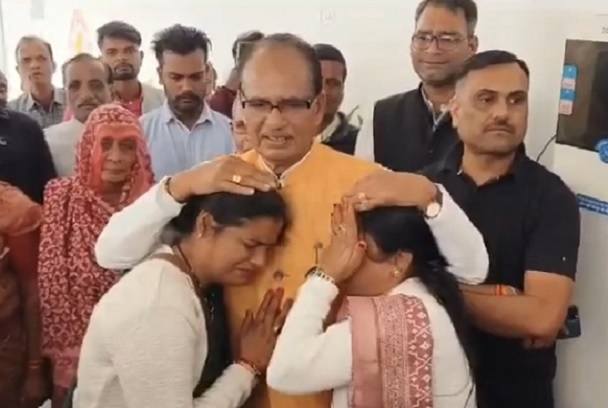Stop privatization of health care services: Jan Swasthya Abhiyan on World Health Day

Senior Correspondent
NewsBits.in
BHOPAL: To commemorate World Health Day on April 7, 2025, Jan Swasthya Abhiyan India – the People’s Health Movement has raised a collective voice for ensuring health rights for all.
On this occasion, a memorandum was sent by the Secretariat of the abhiyan to the President of India and the Minister of Health and Family Welfare, Jagat Prakash Nadda.
Also on this occasion, a memorandum containing eight demands was presented to the President Droupadi Murmu and the chief ministers and health ministers of 18 states (Chhattisgarh, Odisha, Madhya Pradesh, Uttar Pradesh, Jammu & Kashmir, Rajasthan, Bihar, Manipur, Maharashtra, Punjab, Karnataka, Jharkhand, Himachal Pradesh, Gujarat, Uttarakhand, West Bengal, Assam, Tamil Nadu) and two union territories Delhi and Ladakh.
The demands were presented in the form of a memorandum that was given at the district and development block level through the Collector and Sub-Divisional Officers in 120 districts.
A meeting (online & offline) was also been organized to discuss the challenges of health in various states. A year-long campaign to ensure health for all in various states has been planned.
In five states of the country, Gujarat, Madhya Pradesh, Uttar Pradesh, Karnataka, and Jharkhand the government is taking the initiative to hand over the district hospital to private entities, which are opening private medical colleges. This is also being opposed by medical doctors and health care providers’ groups, social organizations and citizens.
To make the health care system people-oriented and strong and to save the government health system, Jan Swasthya Abhiyan India raised the demand for Right to Health Act.
The Alma-Ata Declaration was ‘Health for All’ by the year 2000, however, even after 25 years, it has not been fulfilled. Jan Swasthya Abhiyan India discussed, communicated and held several rounds of meetings with various social organizations, institutions, and health experts across the country to discuss various health-related issues and discussed the current health problems, anti-people policies and challenges of the government and also collected suggestions for improving health services.
Jan Swasthya Abhiyan India has said that privatization of public health services and handing over of district hospitals and health centers should be stopped immediately.
The government should strengthen and expand the public health services, increase the health budget up to 2.5% of the GDP and take care of health of its citizens by providing not only the health care services but also ensure that the major determinants of health like Food Security, Safe Drinking water, Employment, Safe Environment, Quality Education to children, Women safety, Safe Working Place etc. is prioritized and addressed.
Demanding universal health care and safe working environment for all Indians Jan Swasthya Abhiyan India will strongly raise these issues along with the following demands across the country with local support:
- Stop Privatization in health and health care services.
- All the medicines at public facilities should be free and no tax on life saving and essential medicines.
- Enact Right to health Act that binds the public and private health sector and strengthens the public health sector by increased funding at least by 2.5% of the GDP.
- Ensure decentralized health care governance system, Strengthening and expanding of Public Health Sector including community level services, with improved numbers and working conditions for ASHA, ANM, PHN etc.
- Universal implementation of Clinical Establishment Act in all the states, implement rate control and implement the standard treatment guidelines in the private health sector.
- Ensure the Food Security, Safe Drinking Water, Employment, Safe Environment, Women’s Safety, Safe Working Environment etc. as major determinants of health.
- Ensure occupational health safety in all the sectors for workers; Implement the universal acts, rules and policy in this regard.
- Include health in all policies and stop discrimination including lack of digital records in accessing health services.









